As the travel industry continues to grow, more and more people are taking to the skies to explore new destinations. For those who enjoy good beer, travelling can present a unique opportunity to try new brews worldwide.
However, many travelers wonder if they can bring their favourite beers home. The answer is yes but with some restrictions. Checking beer in luggage in your luggage can be a great option, but knowing the rules and regulations surrounding this process is important.
Here we will explore the dos and don’ts of checking beer in your luggage, including the types of beer you can bring. How much can you bring, and how can you pack your beer to ensure it arrives safely and properly?
We will also discuss the risks and challenges associated with transporting beer in your luggage, such as potential damage to your bottles or cans or the risk of them breaking and spilling during flight. By following the below step on checking beer.
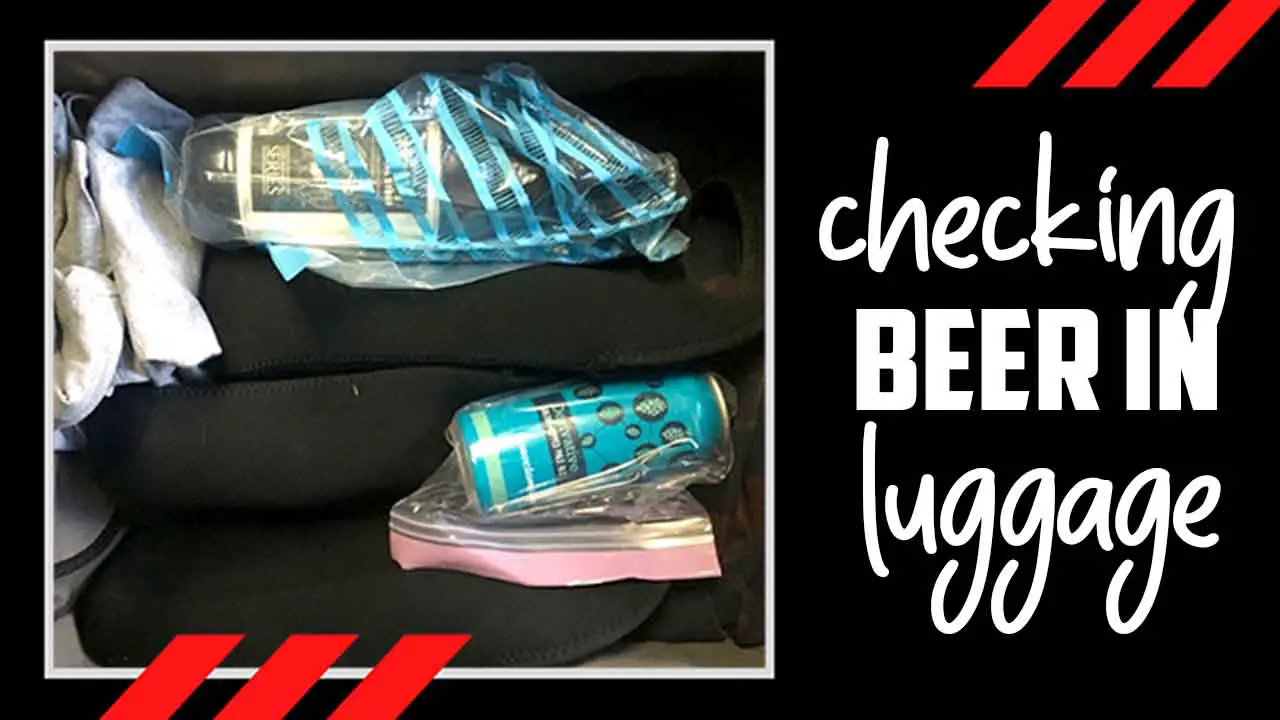
Checking Beer In Luggage: Rules And Restrictions
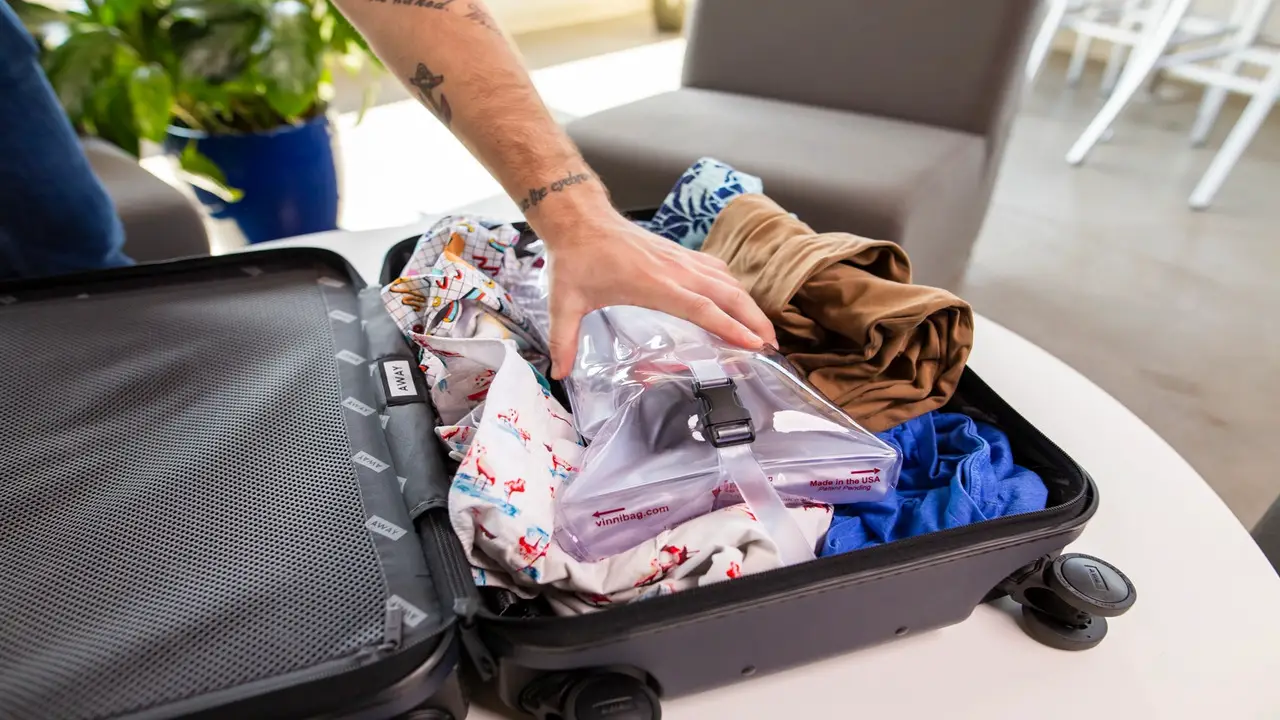
When checking beer in luggage, it’s important to familiarize yourself with the rules and restrictions that may apply. First and foremost, check the airline’s policy on carrying alcohol in checked luggage. Knowing what is allowed is essential because different airlines may have different guidelines.
To ensure the beer arrives safely, proper packaging is crucial. Use bubble wrap or padding to protect the beer bottles from breakage during transit. It’s a good idea to place the beer in a plastic bag or wrap it in plastic to prevent any leaks that could damage other items in your suitcase. Be aware that the airlines may restrict the quantity of alcohol allowed in checked luggage.
Some airlines may have limits on the number of bottles or the total volume of alcohol you can transport. Additionally, if travelling internationally, familiarize yourself with customs regulations or taxes that may apply when transporting beer across borders.
Consider using a specialized beer shipping service for convenience and peace of mind. We design these services to transport beer safely while considering all the necessary regulations and precautions.
International Regulations
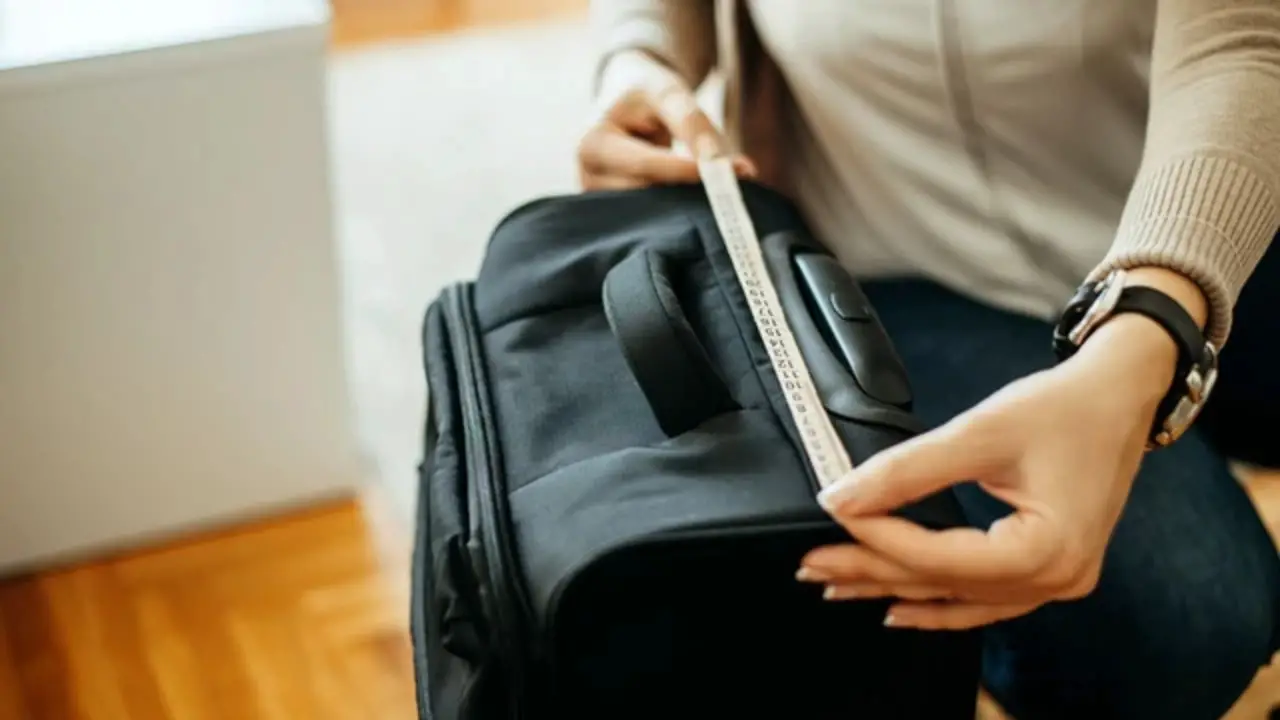
Domestic regulations for transporting beer in luggage can vary depending on the airline and country. Each airline has rules and restrictions regarding checking beer as part of your baggage. Some airlines may allow passengers to check beer without additional fees, while others may have restrictions or charge an extra fee.
To understand their specific regulations, it is crucial to check with the airline. On the other hand, international regulations for transporting beer can be more stringent. Each country has customs and import regulations, which may include restrictions on bringing alcohol into the country.
It is advisable to research the specific customs regulations of the destination country before attempting to check beer in your luggage. This will help you avoid potential issues or delays at the security checkpoint or customs. By staying informed about domestic and international regulations, you can ensure a hassle-free travel experience when transporting beer in your luggage.
Alcohol Content Restrictions
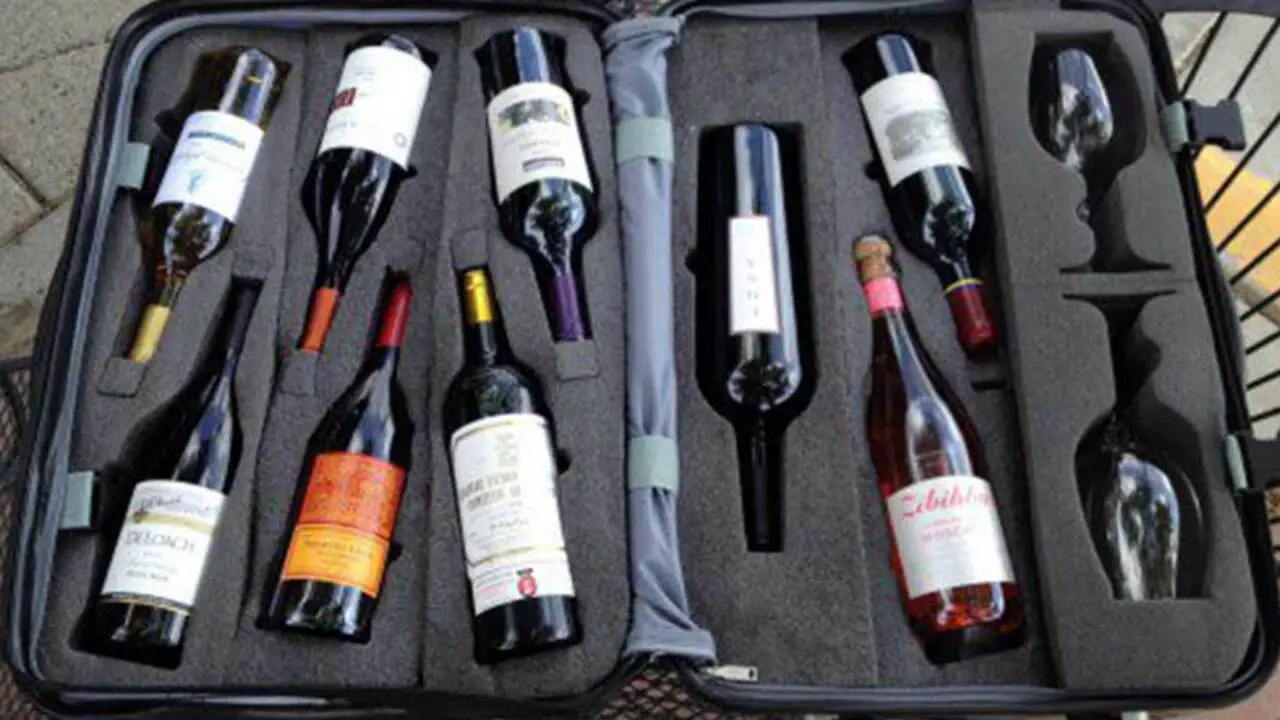
When traveling and planning to check beer in your luggage, you must know the alcohol content restrictions set by airlines and transportation authorities. Each airline may have specific limits on the alcohol percentage allowed in checked luggage, typically around 70% ABV (alcohol by volume).
To avoid any issues at the security checkpoint, it’s essential to research and familiarizes yourself with the rules and restrictions of the airline you’re traveling with. If the alcohol content of your beer exceeds the allowed limit. Airport security could confiscate it from your luggage if it is not permitted.
As a precautionary measure, consider packing beers with lower alcohol content or purchasing beer at your destination instead. Remember to always abide by the regulations of the Transportation Security Administration (TSA) and the Federal Aviation Administration (FAA) for a hassle-free travel experience.
Packaging Guidelines
When checking beer in your luggage, following proper packaging guidelines is crucial to ensure your beer arrives at its destination intact. Use sturdy and leak-proof containers such as cans or bottles with secure caps to prevent leaks or damage during transit. You should avoid using glass bottles if possible because they break more easily.
It’s also a good idea to wrap each individual bottle or can in bubble wrap or clothing for extra protection. Place the beer in a plastic bag or wrap it in plastic to contain any potential leaks. Pack the beer tightly in your luggage to minimize movement and prevent breakage. Remember to check with your airline for specific rules or restrictions regarding transporting alcohol in checked luggage.
Transportation Of Unopened Beer
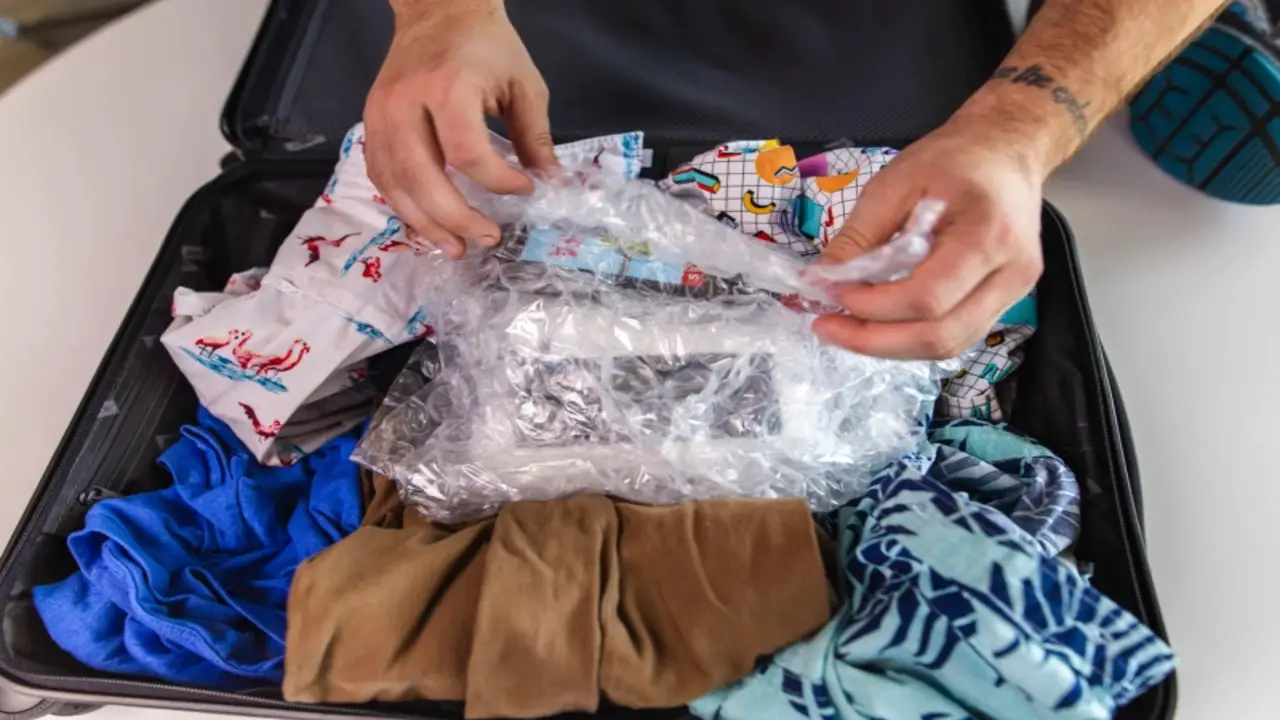
Airlines generally permit passengers to transport unopened beer in checked luggage when air travel. However, it is crucial to check the specific rules and restrictions of the airline and destination you are flying with.
Different airlines and local customs regulations may limit your transport of beer. To ensure the safety of your beer during transit, it is important to pack the bottles securely. This can do using bubble wrap or padding to protect them from breakage.
Some airlines may require the beer packed in a sealed, leak-proof container such as a ziplock bag or plastic wrap to prevent potential damage to other luggage. The airline always recommends checking beforehand and adhering to their guidelines for a smooth journey with your beloved craft beer
Transportation Of Opened Beer
Most airlines have restrictions on transporting opened beer in checked luggage. Generally, it is recommended to pack unopened bottles or cans of beer in checked luggage. Check the specific rules and regulations of the airline you are flying with regarding transporting alcohol.
Some airlines may require you to wrap or pack the beer to prevent breakage securely. Note that there may be limits on the quantity of alcohol that you can transport. So it is advisable to check with the airline beforehand.
Carrying Beer On Board
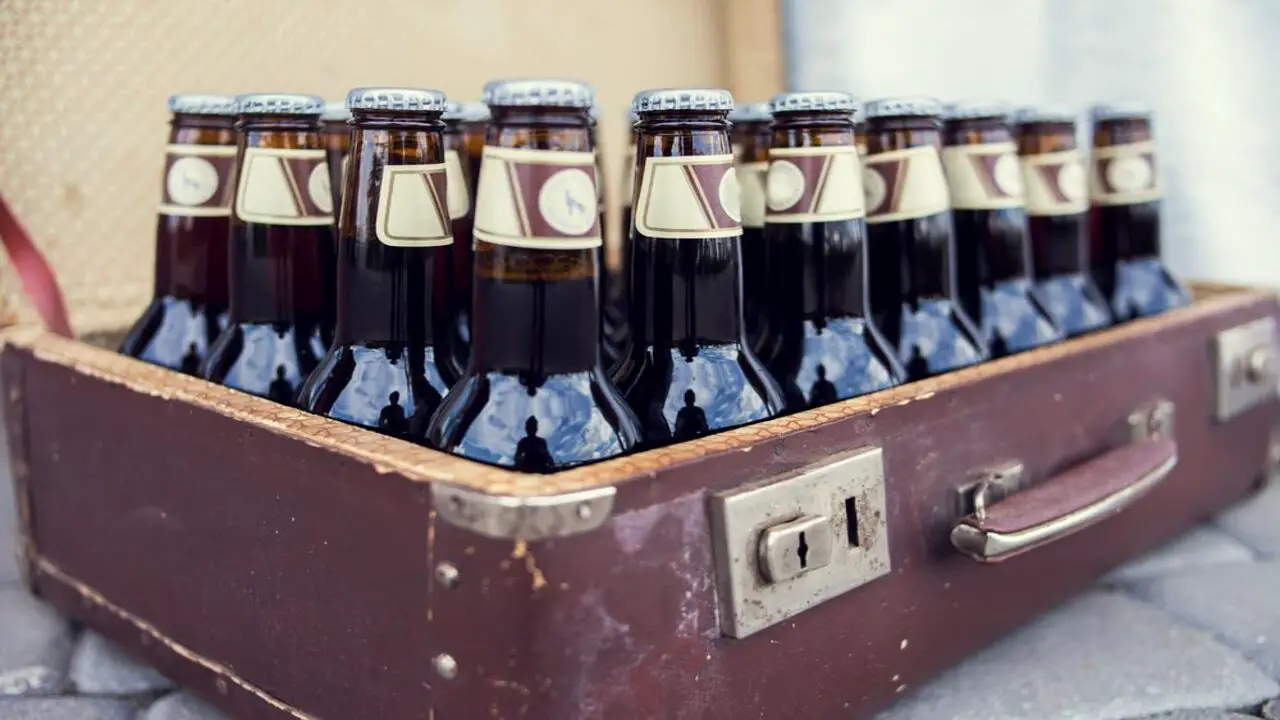
When carrying beer on board an airplane, it’s essential to familiarize yourself with the airline’s policies. Most airlines allow passengers to transport beer in their checked luggage as long as it is properly packaged and meets specific requirements.
To ensure your beer arrives safely, securely pack it in a leak-proof container such as a sealed plastic bag or bubble wrap. Additionally, be aware of any quantity restrictions imposed by the airline or the country you travel to.
It’s also important to consider import or customs regulations at your destination, as some countries may restrict bringing alcohol into the country. Following these guidelines allows you to enjoy your favorite craft beer even when traveling.
Exceptions To The Rules

It is crucial to know that most airlines restrict checking alcohol in luggage, including beer. Therefore, before attempting to check beer in your luggage, it is essential to check your airline’s specific rules and regulations. While some airlines may allow a certain quantity of alcohol to be checked, it must be properly packaged and meet specific criteria.
Additionally, it is vital to research any additional restrictions or regulations on importing or transporting alcohol in certain countries. To ensure the safe transportation of beer, it is recommended to pack it in a secure, leak-proof container and wrap it with padding or clothing to prevent breakage during transit.
Lastly, remember that there may be additional fees or charges for checking beer in your luggage, so it is advisable to inquire about this beforehand.
Conclusion
When checking beer in your luggage, it’s important to be aware of the rules and restrictions set by domestic and international regulations. Pay attention to alcohol content restrictions and packaging guidelines to ensure a smooth journey for your beloved brews.
Whether you’re transporting unopened or opened beer, follow the proper procedures. And if you prefer to keep your beer close at hand during your flight, familiarize yourself with the rules for carrying beer on board. Keep in mind that there may be exceptions to these rules depending on the specific airline or destination. We hope you now understand checking beer in luggage.
Frequently Asked Questions
What Is The Cost Of Flying With Beer Or Wine?
The cost of flying with beer or wine varies depending on the airline and its specific policies. Some airlines may allow you to bring alcohol in your checked luggage for no extra charge, while others may require a fee. It’s important to check with the airline beforehand for their rules and any associated costs.
Which Beers Should I Take Home?
When checking beer in your luggage, it’s important to choose unique beers from the destination you’re visiting. Look for local craft breweries and specialty beers that aren’t widely available. Consider the shelf life of the beer and check airline regulations and customs for quantity restrictions.
What About Bottles In Checked Luggage When Returning From A Foreign Country?
When returning from a foreign country, packing beer bottles in checked luggage is generally not recommended. Bottles can break during transit, potentially causing damage and making a mess. Additionally, customs regulations may prohibit certain alcoholic beverages from being brought into your home country. Consuming or disposing of any leftover beer before returning home is best.
Can I Carry Beer In My Checked Luggage?
Yes, you can bring beer in your checked luggage. However, it’s important to follow guidelines and restrictions. Ensure that the beer is properly packaged to prevent leaks or breakage. Check with the airline for specific regulations on quantity and alcohol content allowed.
How Do You Pack Liquor Bottles In Checked Luggage?
To pack liquor bottles in checked luggage, wrap each bottle in bubble wrap or clothing for protection. Place the wrapped bottles in a leak-proof bag and pack them in the center of your luggage, surrounded by soft items. Always comply with airline regulations regarding alcohol transportation.

